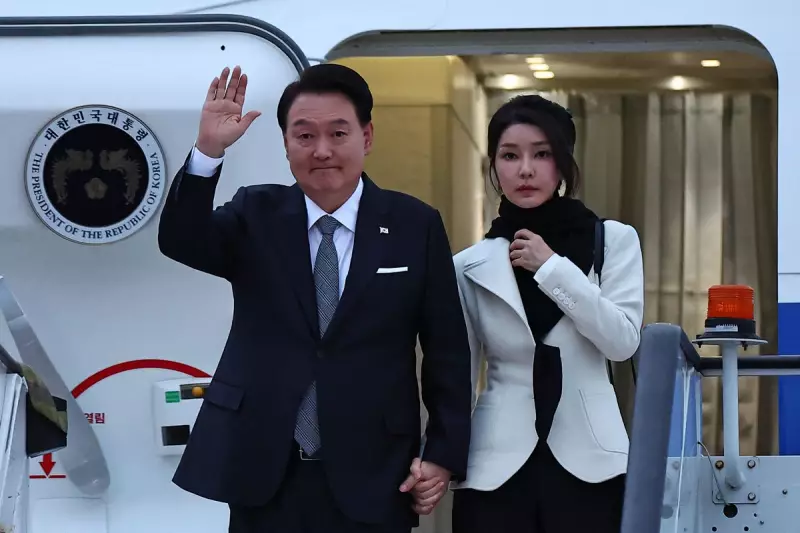
South Korean President Yoon Suk Yeol has found himself at the centre of a growing political storm after sharing details of his traditional Chuseok holiday meal, sparking public outrage amid the country's deepening economic crisis.
Festive Feast Meets Public Fury
During his recent return from the ASEAN summit, President Yoon engaged with reporters in a casual conversation that would soon ignite nationwide controversy. When questioned about his Chuseok celebrations, the leader enthusiastically described enjoying songpyeon - the traditional Korean rice cakes that are a staple of the autumn harvest festival.
"I ate songpyeon at the official residence yesterday," Yoon revealed, adding that the delicacies were prepared by First Lady Kim Keon Hee herself. The seemingly innocent holiday anecdote quickly transformed into a political liability as citizens struggling with soaring food prices questioned the timing and sensitivity of the remarks.
Economic Reality Bites
The controversy emerges against a bleak economic backdrop where ordinary South Koreans are facing:
- Rising inflation pushing basic food items out of reach for many families
- Growing financial pressure during what should be a celebratory season
- Increasing public scepticism about government economic policies
Social media platforms exploded with criticism, with many users questioning whether the president understood the daily struggles facing his constituents. "While we're worrying about whether we can afford holiday groceries, the president is boasting about his wife's cooking," wrote one frustrated commenter.
Political Fallout Intensifies
This isn't the first time President Yoon has faced criticism for appearing out of touch with economic realities. The Chuseok remarks have amplified existing concerns about his administration's handling of the cost-of-living crisis.
Opposition parties were quick to capitalise on the gaffe, with several lawmakers describing the comments as "insensitive" and "divorced from the people's suffering." The incident has provided fresh ammunition for critics who argue the president lacks awareness of how economic policies are affecting ordinary citizens.
Broader Implications
Political analysts suggest the controversy reflects deeper issues within the administration's communication strategy. "In times of economic hardship, every word from a leader carries weight," noted Seoul-based political commentator Park Ji-young. "This incident demonstrates how easily casual remarks can undermine public confidence during fragile economic periods."
The timing is particularly damaging as South Korea faces multiple economic challenges, including weakening exports and persistent inflation that continues to squeeze household budgets.
As the backlash continues to grow, the incident serves as a stark reminder that for political leaders, even holiday small talk can have significant consequences when economic anxieties run high.





